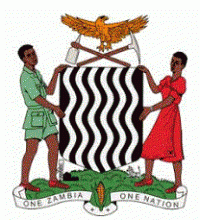Resource information
This Act establishes the National Water Supply and Sanitation Council ("Council") as a body corporate, defines its functions, provides with respect to its administration and provides with respect to water supply and sanitation at a local level by a water supply and sanitation utility established by a local authority or service providers, i.e. any person who provides water supply or sanitation services. Sanitation services shall include the treatment and disposal of waste water in accordance with this Act and the standards established under the Standards Act, the Public Health Act, Environmental Protection and Pollution Control Act or any other written law.The Council shall in general undertake all such things as are necessary to regulate the provision of water supply and sanitation services. It shall, among other things: (a) advise the Government on water supply and sanitation matters; (b) licence utilities and other service providers as well as other activities relating to the provision of water; (c) develop sector guidelines and standards. The Council shall constitute a Technical Advisory Committee.A local authority (a council established under the Local Government Act) shall be under duty to provide water supply and sanitation services to the area falling under its jurisdiction and may, for the purposes of providing such services establish a water supply and sanitation utility as a public or private company or as a joint venture. A utility or a service provider shall not operate except in accordance with this Act and under the authority of a licence issued under this Act by the Council. The Act sets out conditions of licence. The Council may serve an enforcement notice on a utility or service provider that contravenes provisions of this Act.The Act sets out powers of a utility or a service provider with respect to; acquisition of land; the execution of works; reduction of levels of service; rights in respect of land of others. The Council shall appoint inspectors to monitor, inspect and enforce the provisions of this Act. The Minister may, by Statutory Instrument, make Regulations for the better carrying out of the provisions of this Act and a local authority may make by-laws to ensure that the provision of water supply or sanitation services in its area are in accordance with this Act and to ensure enforcement thereof. The Schedule contains rules regarding the Council.



